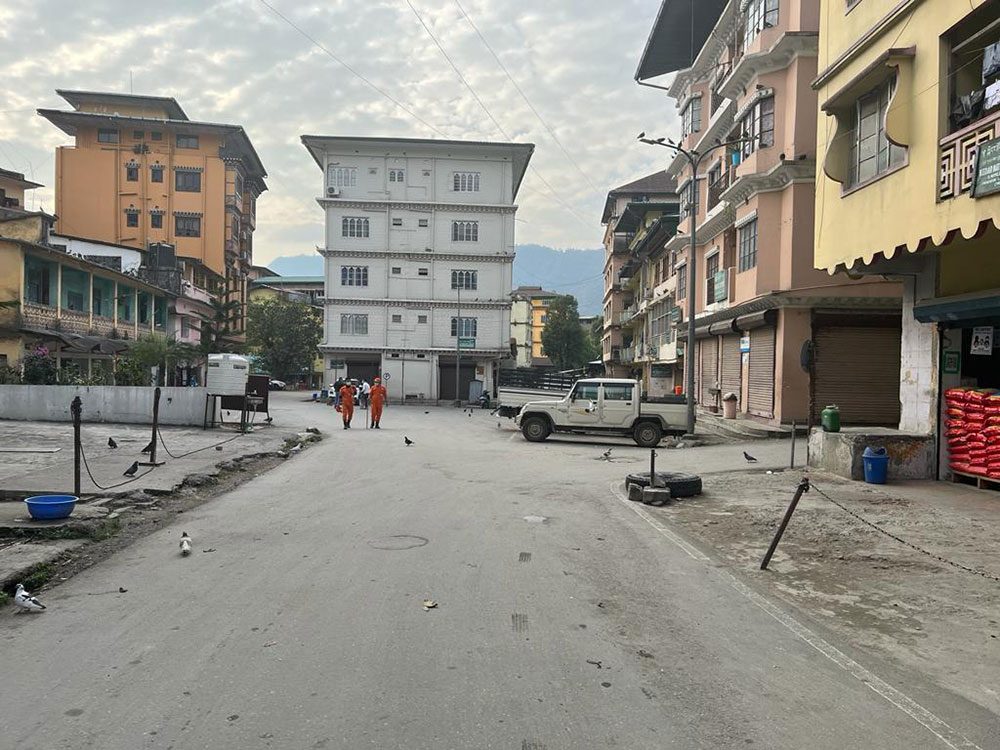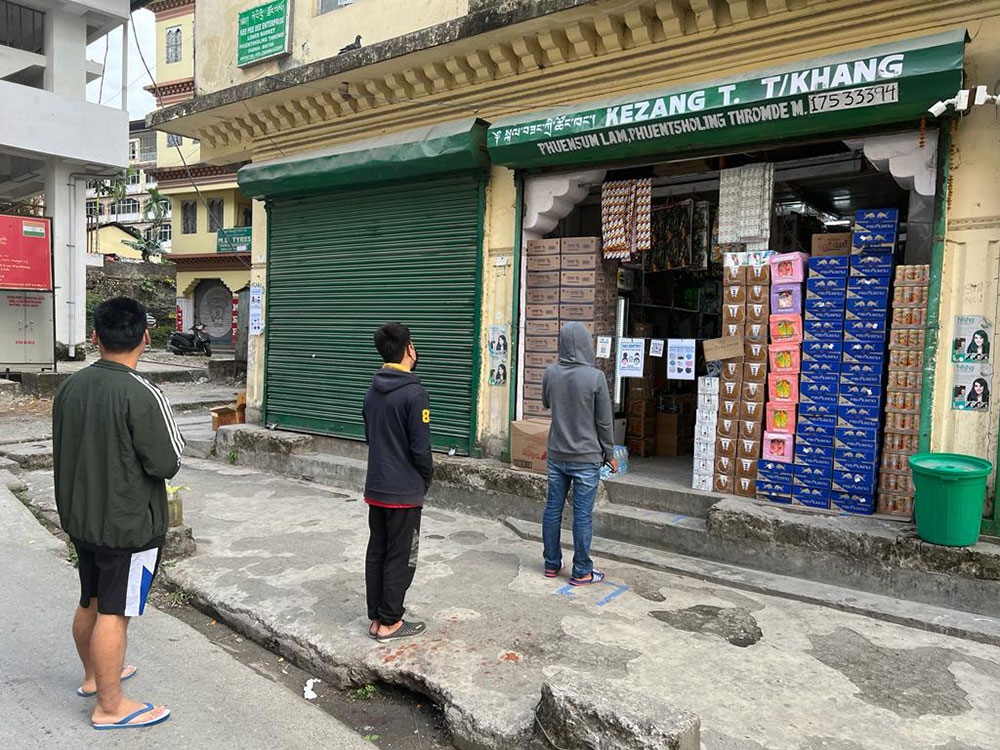Rajesh Rai | Phuentsholing
As Phuentsholing slips further into lockdown with cases emerging from the community every day, small businesses in the town are worried about the impending losses they will incur.
Phuentsholing was placed under lockdown with partial movements on January 14. In just about 10 days since then, 97 Covid-19 positive cases have been reported from the community as of yesterday. Out of the 41 new cases detected yesterday, seven were reported from the community.
Many said that it will be difficult to recuperate from the losses this time if the lockdown is prolonged like it was last year.
A grocery retailer, Dorji Wangchuk, said that he is still recovering from the losses he incurred during the four months of lockdown last year.
“When I opened my shop last year, there was nothing left to sell,” he said. “It was infested with rats and all the goods were past their expiry date.”
Dorji Wangchuk said that he managed somehow with the help of his family and friends.
“Everything was going well. But there is a lockdown, again,” he said. “We are back to square one. People are worried. Small businesses will face the toughest challenge.”
Another businessman and electronics shop owner, Pema Khandu, said people like him have spent most of their earnings on rent for houses and shop spaces.
“I think 70 to 80 percent of the shopkeepers in Phuentsholing are going through the same problem. Bigger businesses may survive, and I am sure they have their own problems,” he said. “But it is the small businesses that are affected the most.”
Pema Khandu said that some grocery and vegetable shops may still be operating and may not have problems. But he said shops dealing in garments, shoes, and electronics, including paan shops, will face problems.
Pema Khandu also said that the government must look into lending interest-free loans to the affected business community in Phuentsholing.
“Phuentsholing and other high-risk places must be considered as different,” he said.
He also said many shops that are closed today have employees who need their monthly salaries for survival.

De-suups patrol the streets of Phuentsholing
A complete lockdown?
With community cases still emerging despite the lockdown, some said that only a complete lockdown can break the community transmission chain.
A businessman, Namgay, said that the town must be either put into complete lockdown or let people live with the virus.
“Keeping the town like this will not help,” he said, adding the rules applicable at present allow some to carry on with their businesses, while some are not allowed.
Should people be allowed to operate their businesses, he said, they will also be responsible and accountable for what they do.
Another shopkeeper said while shopkeepers are asked to stay in containment mode and operate, people are allowed to move with movement cards.
“It makes no sense,” he said. “It is better to let shopkeepers also return home but ask them to do regular Covid-19 tests and be held accountable for protocol breaches.”
The shopkeeper said that a complete lockdown may help contain the community transmission. After that, a smart lockdown system could be applied, he added.
Tshering Dema, 66, who runs a small shop at the multi-storied vegetable complex, said she is worried if the lockdown continues. “It is going to be difficult for us all.”
Severity and the way forward
Despite the increasing number of community cases, Southern Covid-19 Task Force (SC-19TF) member Rixin Jamtsho said that it was not as alarming.
“Going by the number of community cases, our situation is manageable at the moment,” he said.
“We have enough space in quarantine facilities and we are also comfortable with the isolation facilities. But if the cases increase drastically, we may face problems,” he said.
Rixin Jamtsho said that most of the community cases have been detected among the frontline workers, which according to him is expected, given the nature of the Omicron variant, which is three to four times more transmissible than the Delta variant.
“Frontline workers always deal with the people coming from the outside and drivers transporting the essential goods.”
About the way forward for Phuentsholing, Rixin Jamtsho said the National Immunisation Technical Advisory Group (NI-TAG) with the Ministry of Health is coming up with a strategy for the whole country. “So we are waiting for them to finalise and disseminate the plan to us for implementation.”


